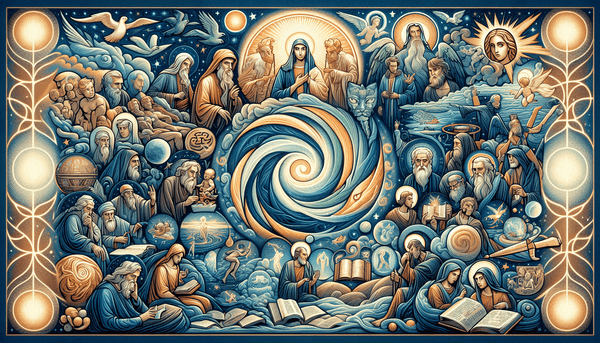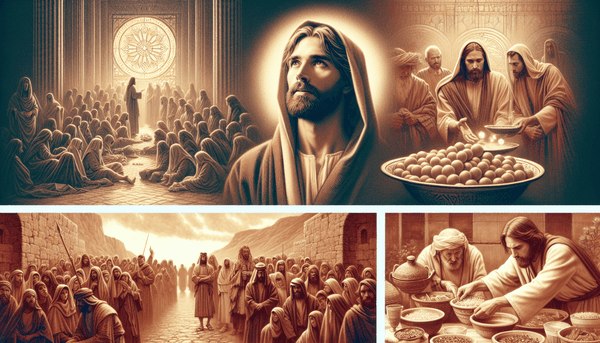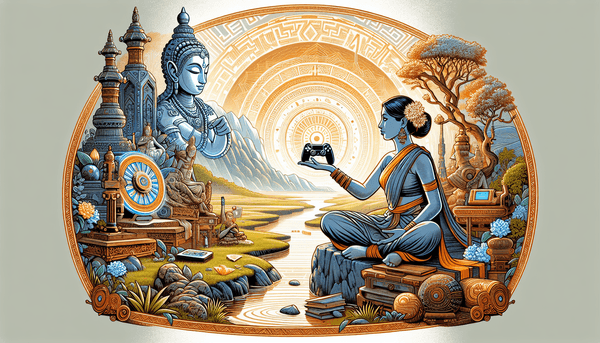The Book of Enoch and Its Place in Christian Tradition
The Book of Enoch, a text attributed to the ancient figure Enoch—the great-grandson of Adam and father of Methuselah—has piqued the interest of scholars and the faithful alike. Though not included in the canonical Bible, its rich themes of angelic realms and eschatological prophecies have cemented its place in certain non-canonical traditions. Its exclusion from the official canon, decided through complex criteria during the formative years of Christianity, has not diminished its historical and cultural value for many. Enoch's legacy lives on in his peculiar departure from life, as described in Genesis 5:24, 'Enoch walked faithfully with God; then he was no more, because God took him away.' This verse, alongside others such as Hebrews 11:5 and Jude 1:14-15, underscores Enoch's profound impact on Christian theology and his testament to a life lived in close communion with the divine.
Ethical Considerations in Christianity: The Treatment of God's Creation
The Bible, while not explicitly discussing bees, imparts a broader ethical framework regarding the treatment of animals and nature. Proverbs 12:10 conveys this sentiment, stating, 'The righteous care for the needs of their animals, but the kindest acts of the wicked are cruel.' This principle of stewardship calls on believers to extend care and compassion to all living creatures, reflecting on the impact of human actions on the environment. The Christian responsibility towards the environment is deeply rooted in the biblical mandate to care for God's creation, as evidenced in Genesis 1:26-28, which entrusts humanity with the dominion and stewardship of the earth. This stewardship is further reinforced by the anticipation of creation's redemption in Romans 8:19-22, reminding Christians that their care for the world is both a present duty and a reflection of the future hope of restoration.
Conclusion
This exploration has traversed the realms of ancient texts, divine mysteries, moral responsibilities, and profound piety. From the historical curiosity of the Book of Enoch to the divergent understandings of God in Christianity and Islam, and from the stewardship of creation to the exalted role of Mary, these discussions illuminate the diversity and depth of religious discourse. As we reflect on these themes, we are reminded of the ever-evolving conversation about faith and the human quest for understanding the divine. May this journey inspire further contemplation and dialogue, fostering a deeper appreciation of the rich tapestry that is Christianity and its place within the broader context of religious belief.
FAQ
Q: What happened to the Book of Enoch?
A: The Book of Enoch is not included in the canonical Bible and is considered an apocryphal or pseudepigraphal text, but it remains of historical and cultural interest.
Q: Is Allah the same person as the Christian God?
A: While 'Allah' is the Arabic word for God used by Muslims, Arabic-speaking Christians, and Jews, the theological understanding of God differs between Christianity and Islam, particularly regarding the concept of the Trinity in Christianity.
Q: Who was Enoch?
A: Enoch was a figure mentioned in the Book of Genesis as the great-grandson of Adam and father of Methuselah, noted for his faithful walk with God and being taken up by God without experiencing death.
Q: Is killing bees a sin?
A: While the Bible does not specifically address killing bees, it calls for the compassionate treatment of all creation, suggesting that our actions should reflect care and respect for living creatures.
Q: Is Mary the mother of God?
A: In Christian theology, Mary is recognized as the mother of Jesus, who is both fully human and fully divine, and therefore she is referred to as the Mother of God or Theotokos.






